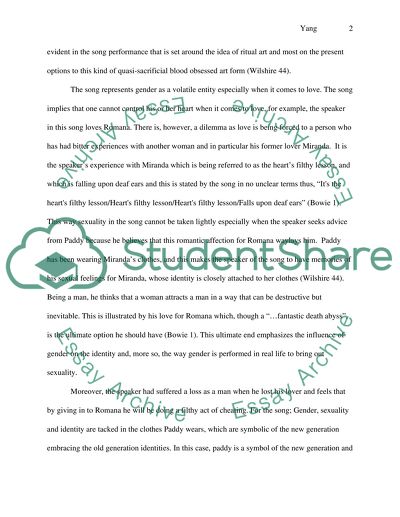Cite this document
(“David Bowie and Gender Performance Admission/Application Essay”, n.d.)
Retrieved from https://studentshare.org/gender-sexual-studies/1443736-david-bowie-and-gender-performance
Retrieved from https://studentshare.org/gender-sexual-studies/1443736-david-bowie-and-gender-performance
(David Bowie and Gender Performance Admission/Application Essay)
https://studentshare.org/gender-sexual-studies/1443736-david-bowie-and-gender-performance.
https://studentshare.org/gender-sexual-studies/1443736-david-bowie-and-gender-performance.
“David Bowie and Gender Performance Admission/Application Essay”, n.d. https://studentshare.org/gender-sexual-studies/1443736-david-bowie-and-gender-performance.


